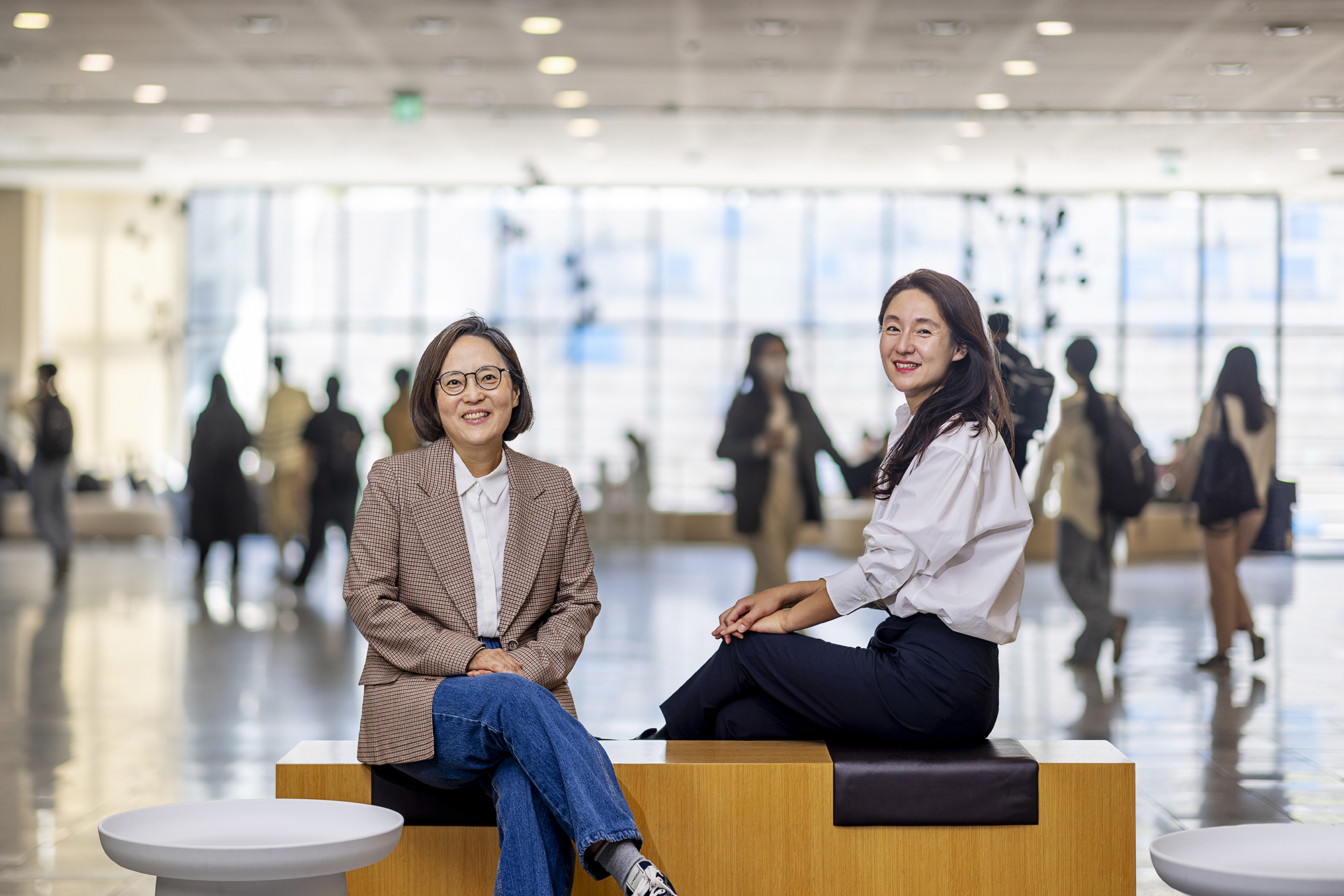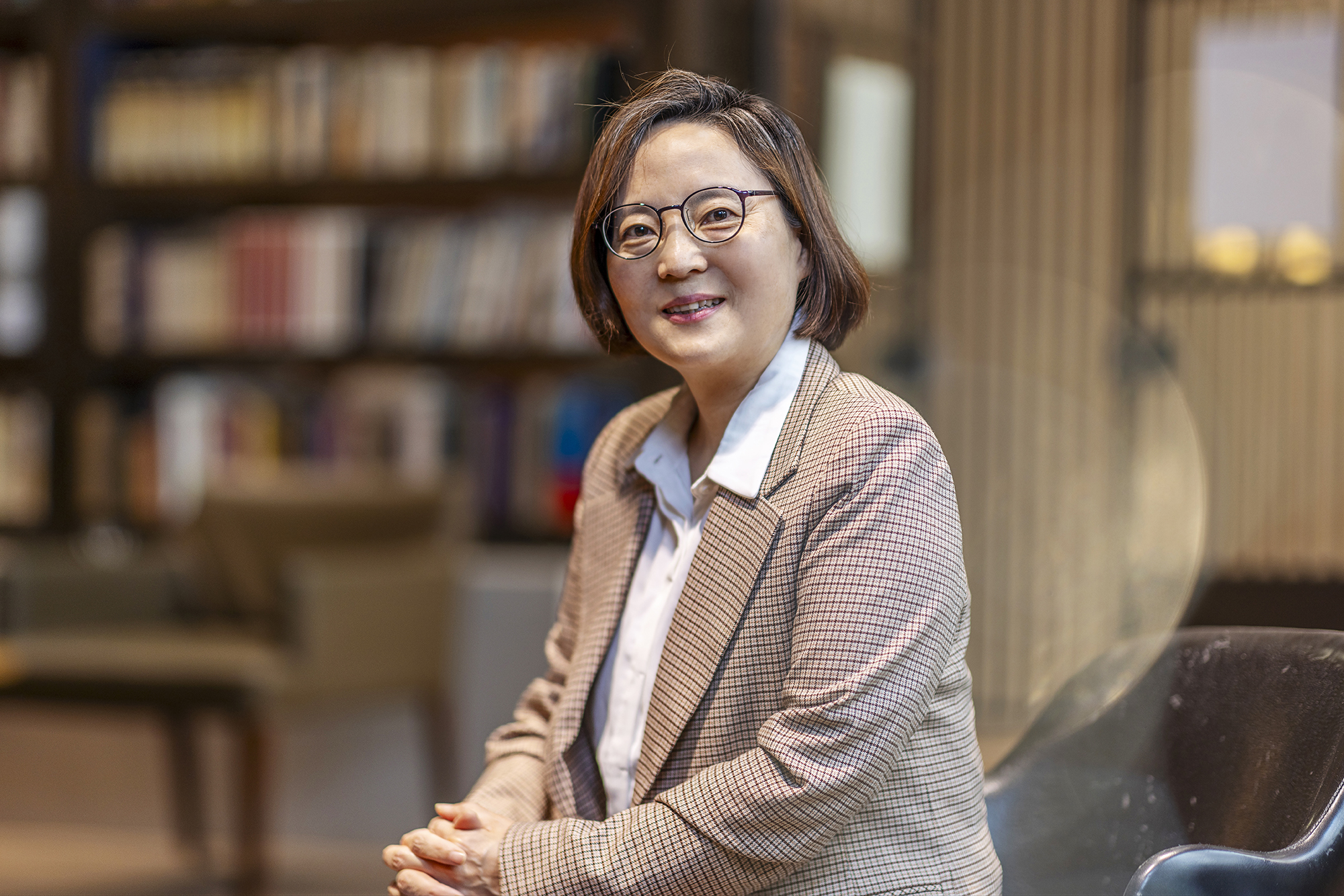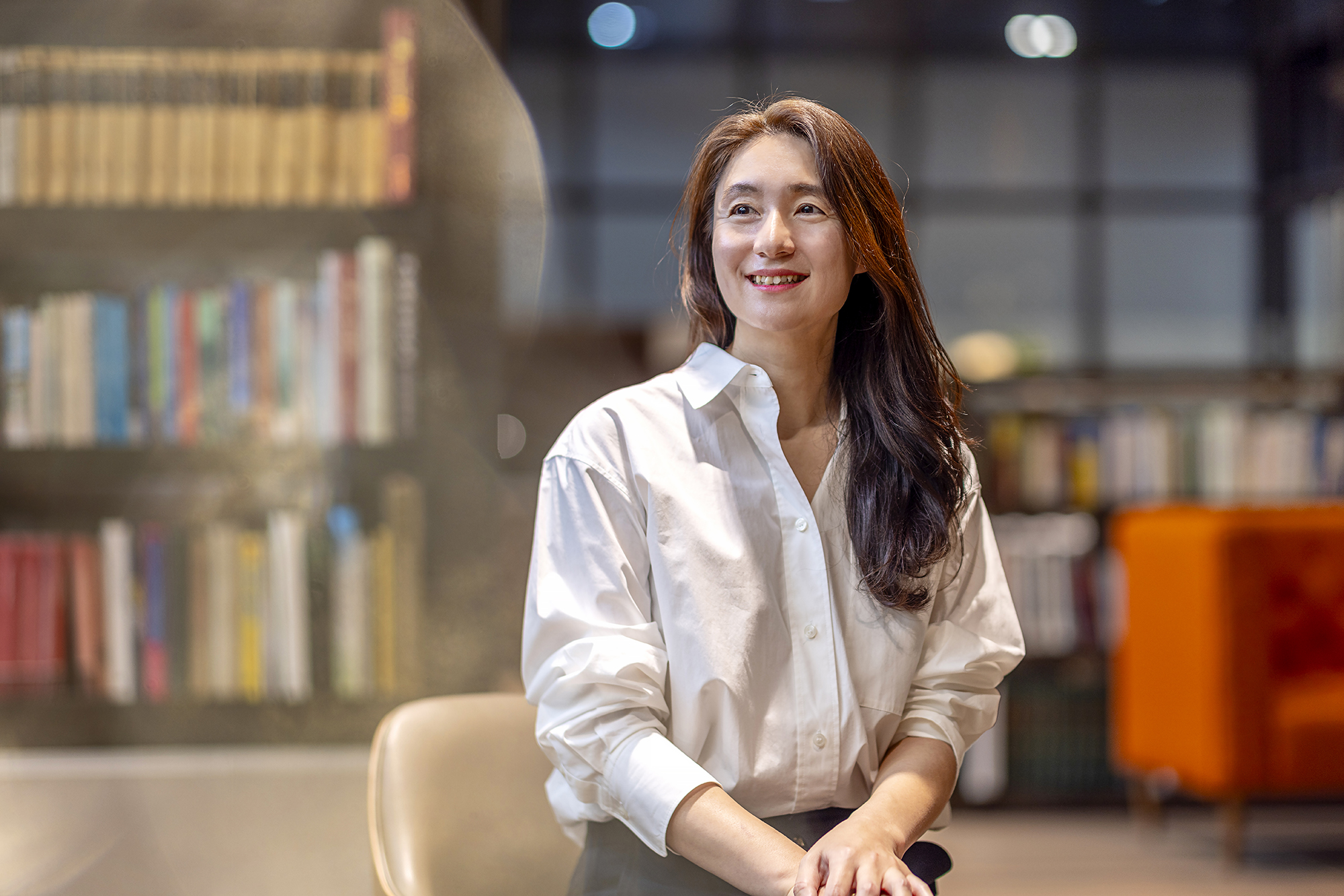- Learning Perspectives to Go Beyond Boundaries Through Introspection May 10, 2024
-
Cultural Anthropology, or the Study of Human Life and Culture Through Fieldwork

Anthropology is the study of humans and cultures in a comprehensive way. Anthropology is classified into four sub-disciplines: cultural anthropology, which compares the different cultures of the world, biological anthropology, which focuses on human evolution and biological aspects, archaeology, which deals with cultural heritage, and linguistic anthropology, which addresses the context of communication.
Among these, cultural anthropology, on which research is particularly active worldwide, stands out for its focus on cultural sensitivity and communication skills to understand and theorize the diversity and universality of human culture. It encompasses a comprehensive and interdisciplinary approach that spans the humanities and social sciences.
Our university established the Department of Cultural Anthropology within the College of Social Sciences in 2008. While for most departments in the College of Liberal Arts and the College of Social Sciences one can have a reasonably good idea of their fields based on the name of the department, that of cultural anthropology is a little vague. Understanding and defining the concept of culture is a challenging task. It is not clear what exactly one can learn or how knowledge can be deepened when studying human beings and culture as an academic discipline. We have a vague idea of cultural anthropology but do not know much about the subject. Professors Hyun Mee Kim and Bo Kyeong Seo sat down with us to answer questions from Yonseians.
Q. You are one of the founding members of the Department of Cultural Anthropology. Please tell us about the background behind the establishment of the department.
(Hyun Mee Kim) In fact, not many universities have an anthropology department in our country. Our university established the Department of Cultural Anthropology in March 2008. Back then, I was affiliated with the Sociology Department, working alongside Professor Hae Joang Cho-Han. In order to understand the significant social changes that occurred in the early 2000s, such as the rise of neoliberalism and globalization, the diminishing roles of traditional communities such as family and nation, and the expansion of individualization, it was not appropriate to apply traditional theories. We realized the importance of field-based and experiential teaching and research. It was difficult to capture the changing conditions of life and understand the changes in the setting and human actors in depth using existing theories or views. Therefore, we wanted to train students to undertake extensive fieldwork and interpret the results. We started preparations in earnest in 2005 and three years later, the Department of Cultural Anthropology was separated from the Department of Sociology.
Q. Cultural anthropology is a branch of anthropology. Can you introduce us to the academic fields of anthropology?
(Hyun Mee Kim) Originally, anthropology emerged in the colonial era. Countries like the United Kingdom, the United States, and Germany, driven by imperialistic ambitions, recognized the need to understand the cultures of the people they encountered during the process of colonization. As a result, anthropology developed various perspectives, such as the evolutionary perspective that examines humans from a biological standpoint, the archaeological perspective that analyzes artifacts and remains to understand past lifestyles, the linguistic perspective that interprets symbols to comprehend a society's worldview, and the cultural perspective that studies the interconnectedness of different cultures within a unique historical context.
Q. What are the characteristics of cultural anthropology that distinguish it from other disciplines?
(Hyun Mee Kim) In recent academic trends, the ability to think considering various disciplines and from different perspectives has become increasingly important. For example, while it is important to learn biology and thus acquire a biological perspective, it is also crucial to understand how things we consider biological are connected to social and cultural aspects. The ability to think comparatively, be flexible, and think creatively, as emphasized in cultural anthropology, seems to be advantageous for cultivating individuals who can quickly absorb and transform knowledge from various fields, rather than those who only possess specialized knowledge in a specific discipline.
Cultural anthropology has a rich history of challenging and critiquing long-established perspectives such as colonialism, male-centric views, first-world perspectives, white-centric views, and racial biases within its knowledge framework through ongoing self-reflection. Therefore, 'border crossing' is considered to be a fundamental concept in anthropology. Some boundaries define a biological separation of men and women, a racist classification of whites and blacks, or a sectarian separation that considers the West to be completely different from the other regions. However, these notions no longer have any effect. In this world, we should constantly transcend boundaries in various forms and see problems from different perspectives to find solutions. The Department of Cultural Anthropology offers a program that provides such training.
Anthropology is the study of the human being. Thus, to understand how humans have come to exist on Earth as Homo sapiens, it is necessary to explore how humans adapt to their environment and challenges and live in different ways. The ability of humans to adapt is not about homogeneity, but about embracing diversity and differences to create meaningful actions. Therefore, anthropology can be regarded as a discipline that constantly questions behaviors that disguise themselves as homogeneity and universality without considering the context.
Q. If there is a reason why the Korean society needs the perspectives of cultural anthropology, what is it?
(Hyun Mee Kim) Over the years, the Korean society has been dominated by a single ethnic-centric ideology that emphasizes the necessity of war and economic development. This mindset, a product of the Cold War era, has also perpetuated a strong binary thinking of right and wrong. Gender perspectives have also been rigidly fixed. It has been very unfamiliar to approach problems in a more complex manner or from the perspective of others or through a more relativistic point of view.
The beginning of the history of anthropology was rooted in an imperial scholarship, but constant conflicts, refutations, and introspection within it have led to the advocacy of diversity, crossing of boundaries, and rejection of binary thinking. As a result, I believe that students who have received such training will have different ways of thinking, language, and problem-solving approaches. In fact, students who have studied cultural anthropology play such a role in the society.Q. Cultural anthropology appears to be a discipline that fosters diverse perspectives through introspection. However, it would be great if not only cultural anthropology students but also other students could be exposed to such perspectives.
(Bo Kyeong Seo) Our department has a large number of students from other departments in our classes. Although the number of students majoring in the Department of Cultural Anthropology is not large, many students from other departments choose it as a minor.
Q. What are the unique characteristics of the Department of Cultural Anthropology of our university?(Hyun Mee Kim) Our department's notable characteristic is its commitment to bridging the gap between academic knowledge and practical social issues. We strive to not only circulate anthropological methodologies, insights, and research findings within academia, but also to address real-world problems and ensure that our scholarly research reaches the general public. Through action-oriented research, we focus on resolving specific issues and enhancing cultural understanding of social problems. Furthermore, many professors care about social justice, engaging with civil society and maintaining a variety of community activities. Collaborative research is frequently conducted with NGOs and expert groups. Compared to the anthropology departments of other schools, we have a significantly higher emphasis on activities aimed at solving social issues.
Q. Please introduce us to the areas of study that you are focusing on.(Hyun Mee Kim) When we first created this department, our goal was to research anthropology for the era of paradigm shift. We have been dealing with issues that were not familiar to us, such as global border crossing, poverty, refugees and immigrants, gender and minority identity. In addition, we also cover areas that have recently attracted attention such as the emerging cultural industry and Korean Wave, cultural criticism, science and technology, ecology, and animal rights. What is considered a peripheral topic in other departments is sometimes made central in the Department of Cultural Anthropology. Professor Bo Kyeong Seo is engaged in interdisciplinary research that goes beyond the boundaries of biological and cultural anthropology, focusing on the field of medical anthropology.
Q. I am curious about the specific discussions and explorations that take place in medical anthropology.
(Bo Kyeong Seo) Medical anthropology began to be organized as a subfield of social and cultural anthropology in the 1980s, primarily in English-speaking countries. It has experienced the fastest quantitative and qualitative growth in the field of anthropology in the past 30 years. Actually, one of the reasons why medical anthropology has rapidly grown is the emergence of new infectious diseases and re-emergence of infectious diseases worldwide since the 1980s.
The issue of healthcare cannot be achieved solely through physiological advancements. Research demand has been increasing in the field of medical anthropology, as it seeks to understand how diseases and health are experienced differently in various societies and cultures in order to create the most appropriate form of healthcare system. As a result, medical anthropology has become a crucial discipline and the same holds true in South Korea.
Personally, I am interested in how countries that are commonly referred to as developing countries, which have not yet reached the level of welfare states, implement universal healthcare and provide healthcare services that are close to free through public hospitals. It is fascinating to see how countries that are economically considered less advanced than South Korea are able to establish such healthcare systems.
Q. Can you introduce your current medical anthropology research in detail?
(Bo Kyeong Seo) I have been conducting research on the history of HIV prevalence in South Korea and on the stigma that people with HIV are experiencing. The research I am currently conducting is a collaborative effort between anthropologists from South Korea, Germany, South Africa, and the Democratic Republic of Congo, supported by the Volkswagen Foundation.
The Volkswagen Foundation is one of the largest research foundations and it supports a wide range of fields, from natural sciences to social sciences and humanities. It has unique research regulations. It is imperative that countries with varying economic levels collaborate on joint research. This is based on the assessment that it is difficult to generate new forms of knowledge through research conducted by major powers using their traditional research methods and from the perspective of providing assistance to smaller countries.
The collaborative research mentioned earlier examines how four countries - South Korea, Germany, South Africa, and Congo - implemented measures to combat COVID-19 and established mobility restrictions in their respective locations. The study aims to analyze the appropriateness of these measures and identify any shortcomings. The most crucial point is to advance research in ways that overcome post-colonialism. A group of countries that do not serve as points of comparison have come together to address how to recover from the global experience of the COVID-19 pandemic and prepare for future infectious disease responses. This will be a four-year project that aims to develop anthropological knowledge and insights.
Q. I am wondering what are the topics for fieldwork in each country.(Bo Kyeong Seo) The quarantine policy in Korea required people to stay at home. Researchers are studying the feasibility of this policy considering the urban residential facilities in Korea, such as the cramped studio apartments where young people actually live. We are interviewing people about their experiences of long-term self-isolation in very limited living spaces. Additionally, we are conducting participatory observations on the changes in urban spaces, and have been researching for nearly a year. We are also visiting hospitals that primarily treated COVID-19 patients to directly interview them about the difficulties they faced in their response at that time.
In Germany, different policies were implemented on a state-by-state basis. Among the workers considered essential in Europe are the transportation workers, who are responsible for transporting groceries and other important goods in large trucks. However, each state had different quarantine policies that these transportation workers had to navigate when crossing the border into Germany. Therefore, we are currently researching how the transportation workers, who were considered essential at the time, experienced the crossing of domestic borders, and we are sharing their experiences with today's transportation workers.
In South Africa, numerous large-scale unauthorized settlements exist. These slum areas are located within the cities, and during the COVID-19 situation, restrictive policies were implemented to prevent people living in slums from leaving. This led to a situation where, under the pretext of disease management, individuals in poor living conditions were unable to leave. We are conducting fieldwork in South Africa to determine what made the implementation of these restrictive policies possible and what made it impossible.
The Congo team is conducting local investigations at the Paul Institute, which has a long history of Ebola research in the region. This team is studying the Rwanda–Congo border, where small-scale traders rely on border crossings for the movement of goods. They are investigating how these people requested permission for border crossings during the COVID-19 period and how the management policies have changed. Furthermore, they are researching the impact of the previous border closures on current small business owners.Q. The fieldwork you mentioned seems to require a long-term research effort. Do undergraduate students have the opportunity to experience this type of fieldwork? Could you please explain how the fieldwork with students is conducted?
(Bo Kyeong Seo) Of course. Fieldwork is highly valued in our department. Fieldwork is conducted during the entire semester of the 'ethnography' course. We train students to obtain a deep understanding of people's cultures in a particular time and space. Students decide on a topic for themselves, study in-depth as a team, and eventually write ethnography.
Once a year, for a duration of 3 nights and 4 days, the entire department goes on a fieldwork trip to a specific village or city. The student-organized fieldwork steering committee decides on topics, and professors provide some advice. The students do most of the planning, organize themselves, and decide if it is a suitable time to do the fieldwork. Our most recent fieldwork took place in Paju. During the fieldwork, various topics were selected, including the controversy surrounding the closure of the Paju military camp town, the background of the publishing complex, and the peace village located in the border area. Over the course of 2–3 months, they continuously reinterpret and classify the collected data and resources to write the ethnography.(Hyun Mee Kim) Students make presentations with the written ethnography, and professors provide immediate feedback. Cultural anthropology is a methodological study of humans. Anthropology is about entering the field of other people's lives, and without their favor and invitation, research is impossible. The quality of knowledge varies depending not on what we are researching but on what the person tells us, what their emotional state is, and how they communicate. That is the reason why so many methodologically ethical guidelines exist, such as "Do not consider people as subjects." It is a study between humans, not between humans and subjects. These things matter. Providing students with extensive ethical guidelines seems to contribute to their maturity as they diligently read them. Students learn a great deal about ethical sensibilities, such as considering different perspectives and research methods, sharing research findings, and how to recreate phenomena and people's lives ethically. As a result, the process of academic pursuit fosters personal growth. Students naturally learn how to interact with others and avoid making assumptions or discriminating based on biases in the field.

Q. What types of students should major in cultural anthropology?
(Hyun Mee Kim) Cultural anthropology is a broad and diverse field of study. It is open to all young people who are concerned with how they can experience a wide range of knowledge and experiences in a unique and enriching way, without worrying about whether they belong to the humanities or the sciences. When you study other human beings and their lives, you end up asking yourself questions repeatedly. It is comparable to an interactive introspection. If you are a student who can deeply study the cultural phenomena that occur as we navigate through local, national, and global changes, and actively engage with the culture of reality, it would be the best choice for you.
(Bo Kyeong Seo) In our department, you can study culture as a holistic way of life through the perspectives of cultural relativism and comparative culture, and learn methodologies to deeply analyze culture in various contexts. Furthermore, you will develop the ability to engage with real-life social issues such as healthcare, poverty, development, urban regeneration, immigration, and refugees, while fostering creativity in designing new solutions. Students can be trained to become cultural analysts and planners through fieldwork and internships at sites across the country and abroad.
(Hyun Mee Kim) Graduates of the Department of Cultural Anthropology often pursue careers in fields such as business, media, and academia or engage in the planning and production of cultural content, such as film directing or writing. They also engage in fields that address social issues by expanding into international organizations and domestic and international NGOs. As they study humans from others' perspectives, they often work in the field of marketing. Graduates from the Department of Cultural Anthropology, who have been trained in cultural sensitivity and methodology, are demonstrating their abilities as overseas regional experts, cultural planners, and cultural producers in various fields that require a 'cultural perspective.'
show mobile menu
mobile menu




